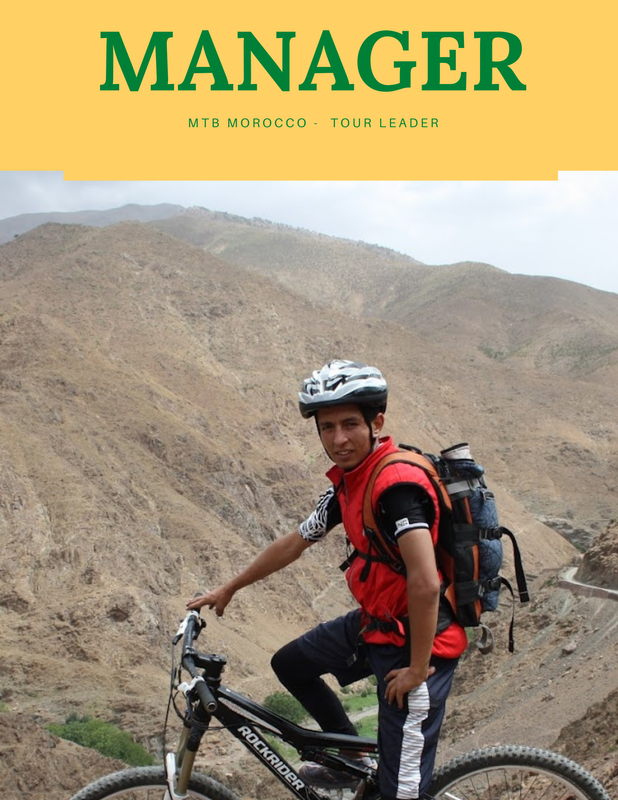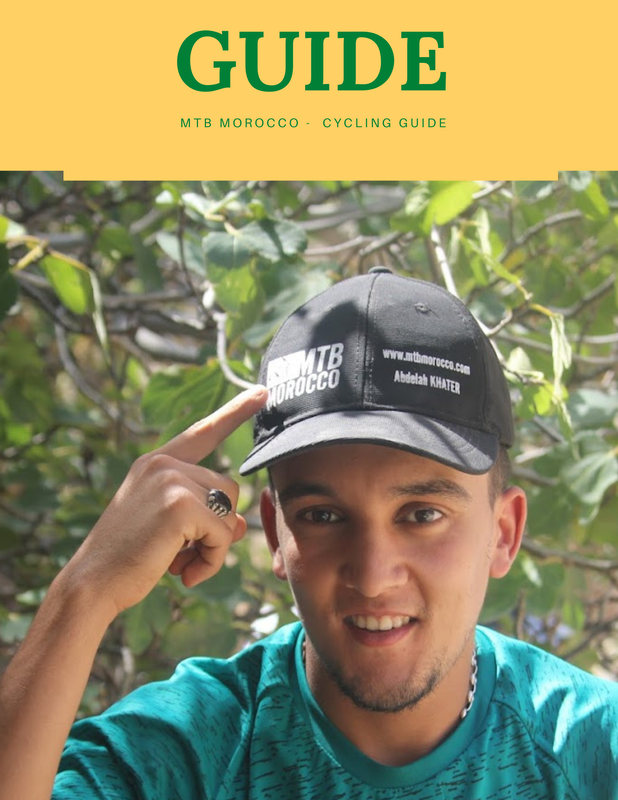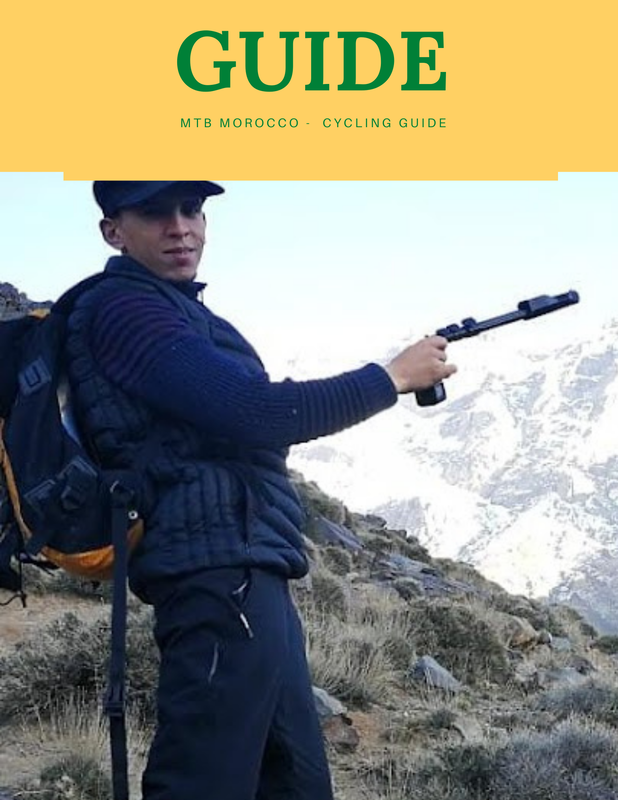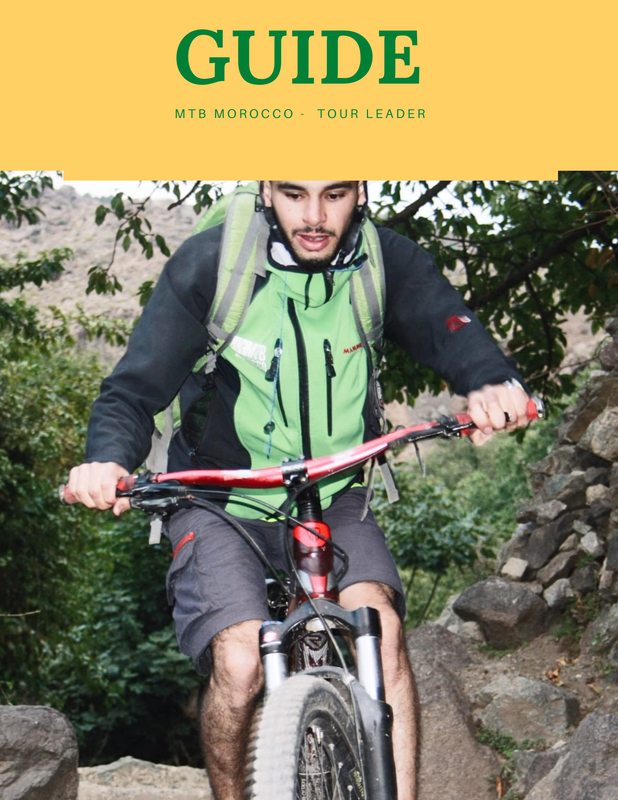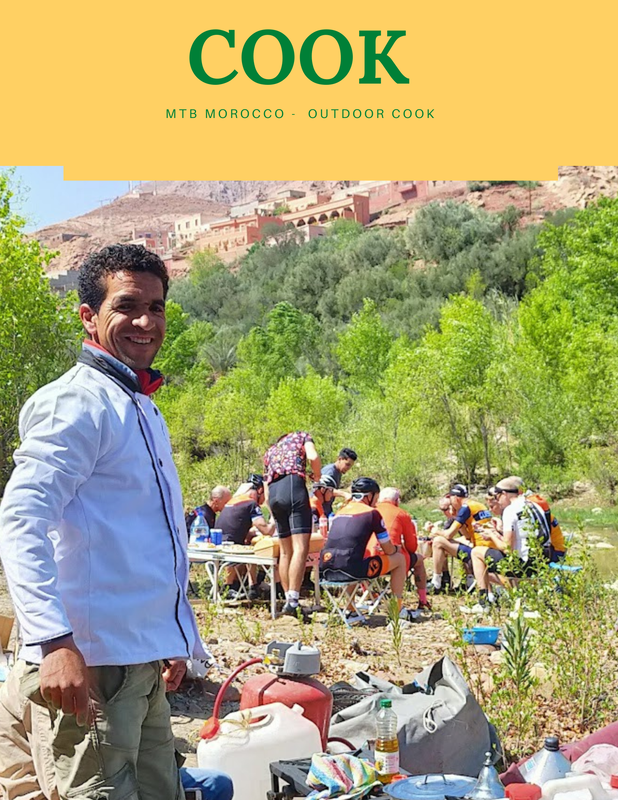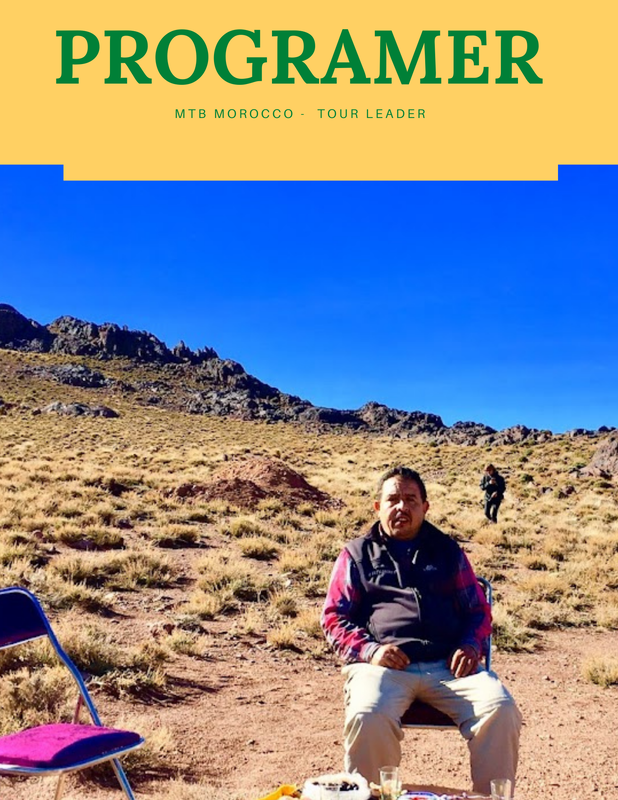What if you set off to discover sublime landscapes for your next bike trip? MTB Morocco has been organizing cycling trips, mountain biking tours and training courses for several years for all cycling enthusiasts, amateurs or professionals. Between sky, sea and mountains, the agency offers suitable circuits in an exceptional setting. Imagined by true cycling enthusiasts, in optimal conditions and under the sign of benevolence. Presentation.
About Berbers
Berbers are an ethnolinguistic group indigenous to North Africa. They are distributed in an area stretching from the Atlantic Ocean to the Siwa Oasis in Egypt, and from the Mediterranean Sea to the Niger River. Historically, they spoke Berber languages, which together form the Berber branch of the Afroasiatic family. Since the Muslim conquest of North Africa in the seventh century, a large number of Berbers inhabiting the Maghreb (Tamazgha) have acquired different degrees of knowledge of varieties of the languages of North Africa. After the colonization of North Africa by France, “the French government succeeded in integrating the French language in Algeria by making French the official national language and requiring all education to take place in French.” Foreign languages, mainly French and to some degree Spanish, inherited from former European colonial powers, are used by most educated Berbers in Algeria and Morocco in some formal contexts, such as higher education or business.
Today, most Berber people live in North Africa, mainly in Algeria, Morocco, Tunisia & Libya;Small Berber populations are also found in Niger, Mali, Mauritania, Burkina Faso and Egypt, as well as large immigrant communities living in France, Canada, Belgium, the Netherlands, Germany, and other countries of Europe.
The majority of Berbers are predominantly Sunni Muslim.The Berber identity is usually wider than language and ethnicity and encompasses the entire history and geography of North Africa. Berbers are not an entirely homogeneous ethnicity and they encompass a range of societies and ancestries. The unifying forces for the Berber people may be their shared language or a collective identification with Berber heritage and history.
There are some twenty-five to thirty million Berber speakers in North Africa. The number of ethnic Berbers (including non-Berber speakers) is far greater, as a large part of the Berbers have acquired other languages over the course of many decades or centuries, and no longer speak Berber today. The majority of North Africa’s population is believed to be Berber in origin, although due to Arabization most ethnic Berbers identify as Arabized Berbers.
Berbers call themselves some variant of the word i-Mazigh-en (singular: a-Mazigh), possibly meaning “free people” or “noblemen”. The name probably had its ancient parallel in the Roman and Greek names for Berbers, Mazices. Some of the best known of the ancient Berbers are the Numidian king Masinissa, king Jugurtha, the Berber-Roman author Apuleius, Saint Augustine of Hippo, and the Berber-Roman general Lusius Quietus, who was instrumental in defeating the major wave of Jewish revolts of 115–117. Dihya or Kahina was a religious and military leader who led a fierce Berber resistance against the Arab-Muslim expansion in Northwest Africa. Kusaila was a seventh-century leader of the Awraba tribe of the Berber people and King of the Sanhadja confederation. Yusuf ibn Tashfin was king of the Berber Almoravid empire; Tariq ibn Ziyad the general who conquered Hispania; Abbas Ibn Firnas, a prolific inventor and early pioneer in aviation; Ibn Battuta, a medieval explorer who traveled the longest known distances of his time.
Today, most Berber people live in North Africa, mainly in Algeria, Morocco, Tunisia & Libya;Small Berber populations are also found in Niger, Mali, Mauritania, Burkina Faso and Egypt, as well as large immigrant communities living in France, Canada, Belgium, the Netherlands, Germany, and other countries of Europe.
The majority of Berbers are predominantly Sunni Muslim.The Berber identity is usually wider than language and ethnicity and encompasses the entire history and geography of North Africa. Berbers are not an entirely homogeneous ethnicity and they encompass a range of societies and ancestries. The unifying forces for the Berber people may be their shared language or a collective identification with Berber heritage and history.
There are some twenty-five to thirty million Berber speakers in North Africa. The number of ethnic Berbers (including non-Berber speakers) is far greater, as a large part of the Berbers have acquired other languages over the course of many decades or centuries, and no longer speak Berber today. The majority of North Africa’s population is believed to be Berber in origin, although due to Arabization most ethnic Berbers identify as Arabized Berbers.
Berbers call themselves some variant of the word i-Mazigh-en (singular: a-Mazigh), possibly meaning “free people” or “noblemen”. The name probably had its ancient parallel in the Roman and Greek names for Berbers, Mazices. Some of the best known of the ancient Berbers are the Numidian king Masinissa, king Jugurtha, the Berber-Roman author Apuleius, Saint Augustine of Hippo, and the Berber-Roman general Lusius Quietus, who was instrumental in defeating the major wave of Jewish revolts of 115–117. Dihya or Kahina was a religious and military leader who led a fierce Berber resistance against the Arab-Muslim expansion in Northwest Africa. Kusaila was a seventh-century leader of the Awraba tribe of the Berber people and King of the Sanhadja confederation. Yusuf ibn Tashfin was king of the Berber Almoravid empire; Tariq ibn Ziyad the general who conquered Hispania; Abbas Ibn Firnas, a prolific inventor and early pioneer in aviation; Ibn Battuta, a medieval explorer who traveled the longest known distances of his time.
THE ADMINISTRATION TEAM
MTB Morocco is an accredited and dynamic brand of Travel Agency VEM, which has a large staff between qualified guides, cooks, muleteers and camel drivers, with high-quality equipment available to our friendly national and international clientele.
Lahcen ErramiPresident/ Guide
In the technical direction, the programming on all Moroccan soil and the specialist in cartography. (Mountain guide), 10 Years experience of Mountain bikes and road cycling across the Mountains and Sahara desert, with really fast answers. |
Abdellah KhaterCycling guide
Cycling Tour guide across Morocco, 5 years experience, after the accident, Abdullah stopped biking, and back into the office for planning the new routes for the family bikes which looking for experience. |
Rachid ErramiVice president - Outdoor guide
The public relations man, a very good guide on the tracks in the desert (On the Regs and Ergs), one from the best guides on the high Atlas Mountains, working with different client from over the world, never get any bad feedback |
Mustapha BaaknaMountain bike Guide
MTB Tour guide across Morocco, 6 years experience, Local guide that born in the Imlil valley 1750m of altitude, the idea of guiding cames from his love to the mountains, Mustapha have been guinding in The atlas Mountains for many years! |
Brahim BounacerCOOK
Our outdoor cook for the Adventure cycling and mountain bike tours around Morocco, Ibrahim is a pro local cook that preparing a special delicious food for our clients during their vacation through the Mountains, Ibrahim Has been woking with MTB Morocco fo 6 years know. |
Brahim ErramiVice president - Outdoor Leader
The PR man who creates new programs, a very good driver on the desert tracks. Responsible for the cooking team for similar bivouac operations and in the mountains. Operation Manager |

